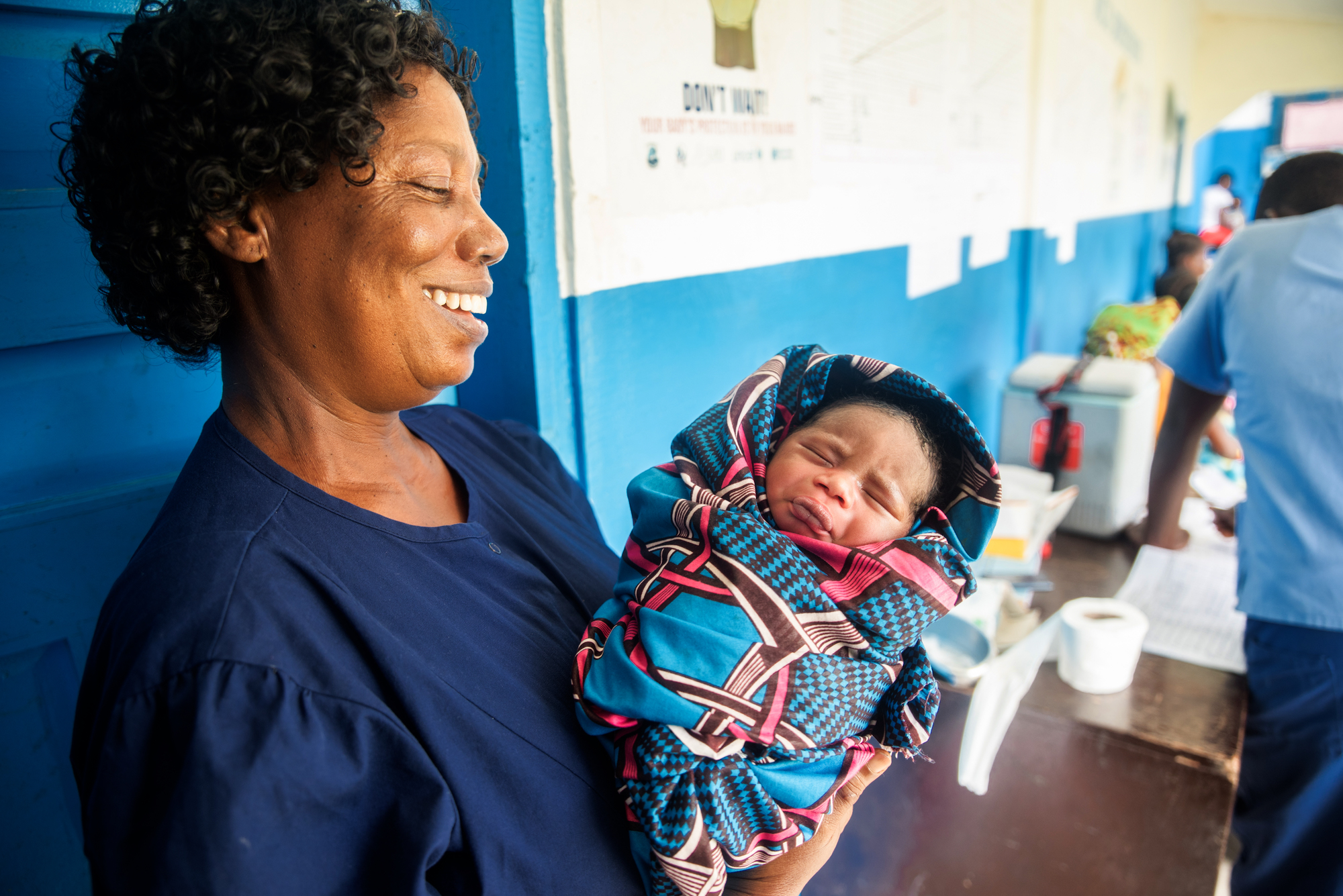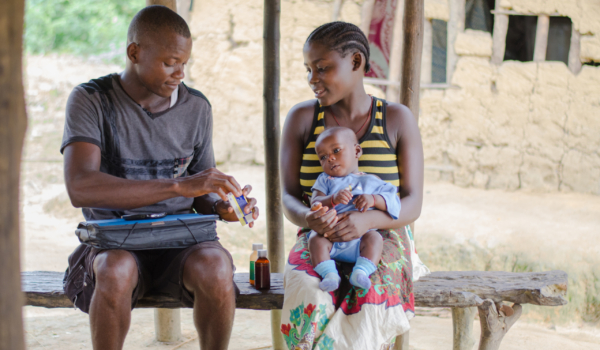 Boegeezay is a small town in an isolated region of northern Rivercess County, Liberia. Outside of a weekly market, there are only a handful of small shops selling basic provisions. The cellular network is often down making it hard to keep in touch with family, and for most of the rainy season, it’s a trying, day-long journey by motorbike to the county capital. Despite the remoteness, Baryou Cadard eagerly accepted a position as the registered midwife for Boegeezay Health Center.
Boegeezay is a small town in an isolated region of northern Rivercess County, Liberia. Outside of a weekly market, there are only a handful of small shops selling basic provisions. The cellular network is often down making it hard to keep in touch with family, and for most of the rainy season, it’s a trying, day-long journey by motorbike to the county capital. Despite the remoteness, Baryou Cadard eagerly accepted a position as the registered midwife for Boegeezay Health Center.
Baryou’s passion for supporting expectant mothers to safely deliver at a facility began at an early age. Like 44% of women in Liberia, Baryou’s mother delivered her and her twin sister at home without clinical care – an experience that would inspire her mother to become a midwife, and would later influence Baryou’s decision to follow in her footsteps.
“When I was in high school, I would watch my mom support women to have a positive childbirth,” explains Baryou. “Even as I worked in other healthcare roles—first as a vaccinator and then an HIV counselor—I continued to train as a midwife. Eventually, I decided to make it official and get my certificate in 2016.”
As the registered midwife for Boegeezay Health Center, Baryou is responsible for a variety of maternal and neonatal health services including antenatal care, delivery, and postpartum care. Because community health workers play a key role in identifying pregnant women at the community-level and referring them for services, Baryou works closely with them to identify, track, and follow-up on all of the pregnant women in the facility’s catchment area. Together, they support expectant mothers to attend antenatal care visits and create referral processes that ensure patients deliver safely at a facility — a collaboration that has dramatically improved maternal health outcomes in Boegeezay.
“I used to see a lot of home deliveries, but this is changing,” explains Baryou. “Because pregnant women trust community health workers, they are more open to coming to the facility for antenatal care and to deliver.”
Beyond extending care, community health workers are critical to building trust among community members. In the nearly three years since Baryou has been a midwife at Boegeezay Health Center, she has delivered more than 500 healthy babies and has seen a significant decrease in home deliveries. Thanks to proactive outreach from community health workers, at-risk pregnancies are being monitored and referred for specialized care so that in 2019, not a single mother died during childbirth at Bogeezey Health Center.
By working in tandem with community health workers to ensure mothers can access high-quality care, midwives like Baryou are helping women deliver their children safely to set them up for a healthy future.
This profile was written as part of a feature in our 2019 Annual Report, which showcases individuals from across all levels of the health system and the globe who play a critical role in the movement for universal health coverage – community leaders, government officials, philanthropists, clinical practitioners, policy specialists and more.




